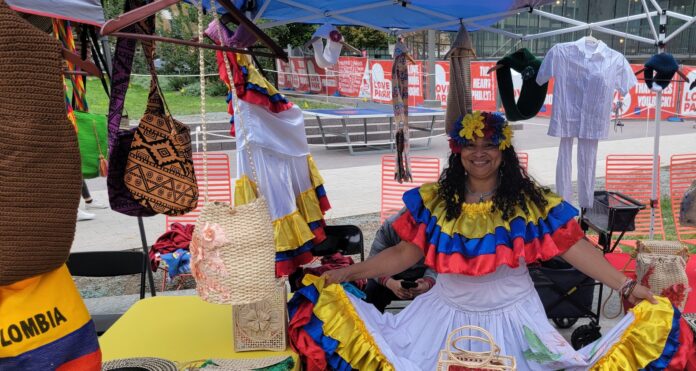Philadelphia, PA – In February, Black History Month is celebrated across the United States. It is an opportunity to be reminded of the beautiful, complex, multi-layered, and diverse nature of the Black experience in the United States. It is a reminder of the importance of “Afro Latinxs’ and their realities on racism, identity, healthcare, economics, education, inclusion, etc., and the contributions to their communities with their unique voices and perspectives.
It is an essential group in the makeup of the Hispanic and Black-American identity. According to the Pew Research Center survey, about 6 million U.S. adults identify as Afro-Latinos here in the United States.
The largest racial group in Philadelphia is Black or African American, with a population of 651,978 (40.83% of the total population). Source: U.S. Census Bureau American Community Survey (ACS) 2017-2021 5-Year Estimates. There is no specific data on how many Hispanics or Latinos are identified as Afro-Latinxs.
One of the most significant issues highlighted by The Creative Justice Initiative, The Afro Latin Forum, and El Centro at Hunter College NYC is not having the specific forms to identify La Afro-Latinidad in the United States, including Philadelphia.
Imagine being fluent in Spanish, raised on salsa, bachata, merengue, and vallenato music, and enjoying your mother’s arroz con pollo, arroz con gandules, only to face discrimination because you don’t fit the stereotypical appearance of a Hispanic person.
This is a common experience for many Afro-Latinx individuals in the nation, including Philadelphia. Afro-Latinx people, hailing from Puerto Rico, Latin American, and Caribbean regions with significant Black populations like Brazil, the Dominican Republic, and Panama, often encounter societal expectations shaped by Eurocentric ideals of identity and beauty.
Consequently, they may be deemed «too Black» within the Latinx community and «too Latinx» among other Black individuals. The identity challenges are more experienced by Latinas, according to Latina Wellness Circle, after interviewing 30 Hispanic women because some of them do not identify as Afro-Latinas or they did not know that term even existed. «For me, «Afro Latina was not something I always identified myself with. I know that I am indigenous, black, and European, but in my community, we never talk about that because we are Latinas.» Malfia Sotelo said
Afro-Latina hip-hop activist, commentator, and journalist Rosa Clemente wrote in her essay «Who is Black,» «I am so tired of having to prove to others that I am Black, that my peoples are from the Motherland, that Puerto Rico, along with Cuba, Panama, and the Dominican Republic, are part of the African Diaspora. Do we forget that the slave ships dropped off our people all over the world, hence the word Diaspora?»
Is it only during Black History Month that we discuss this matter? Let’s continue the conversation to amplify Afro Latinx voices all year long.







